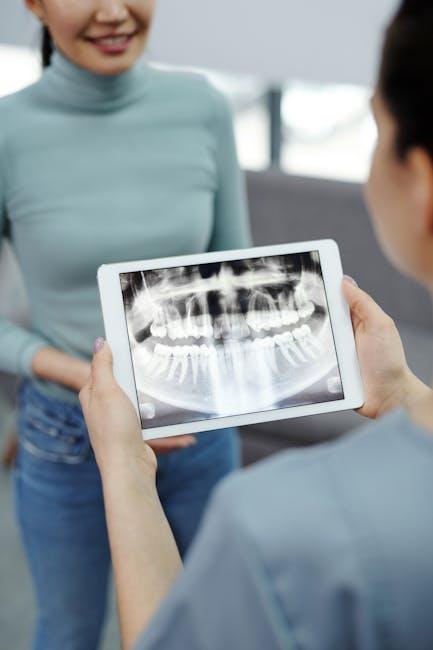
Everything You Need to Know to Keep Your Teeth Healthy – The Washington Post
Maintaining a bright, strong smile goes beyond just brushing your teeth. Whether you’re looking to prevent cavities, combat gum disease, or simply keep your teeth in top shape, this comprehensive guide from The Washington Post will walk you through everything you need to know to keep your teeth healthy for life. From essential oral hygiene tips to lifestyle advice and expert-backed strategies, get ready to transform your dental health with practical, easy-to-follow recommendations.
Why Healthy Teeth Matter: Benefits Beyond Aesthetics
Good dental health isn’t just about looking good when you smile. Healthy teeth and gums contribute to overall wellness in many surprising ways. Here are the key benefits of keeping your teeth healthy:
- Improved digestion: Strong teeth help you chew food thoroughly, enhancing absorption and digestion.
- Prevention of oral diseases: Reduces the risk of cavities, gingivitis, and periodontitis.
- Better breath: Proper oral hygiene prevents bad breath caused by bacteria buildup.
- Enhanced self-esteem: Confidence soars with a bright, healthy smile.
- Reduced risk of chronic health conditions: Oral health is linked to conditions like heart disease and diabetes.
Daily Dental Care Routine: What You Really Need to Do
Your daily routine is the foundation of healthy teeth. Here’s a simple breakdown of habits recommended by dental professionals:
1. Brush Correctly and Consistently
- Use a soft-bristled toothbrush and fluoride toothpaste.
- Brush at least twice a day for two minutes each time.
- Use gentle circular motions to avoid damaging gums.
2. Don’t Skip Flossing
- Floss daily to remove plaque and food particles between teeth.
- Helps prevent gum disease and cavities in hard-to-reach spots.
3. Use Mouthwash for Extra Protection
- An antimicrobial mouthwash can reduce plaque and freshen breath.
- Choose alcohol-free options if you have sensitive gums.
4. Replace Your Toothbrush Regularly
- Change your toothbrush every 3 to 4 months or when bristles wear out.
- Worn brushes are less effective at cleaning.
Best Foods for Healthy Teeth
Your diet plays a vital role in maintaining strong teeth. Certain foods help rebuild enamel and fight decay, while others can damage your teeth over time.
| Best Foods for Teeth | Benefits |
|---|---|
| Cheese | Neutralizes acid and provides calcium. |
| Leafy Greens | Rich in vitamins and minerals like calcium and folic acid. |
| Nuts | Contain healthy fats and minerals to strengthen enamel. |
| Yogurt | High in calcium and probiotics that reduce harmful bacteria. |
| Carrots & Celery | Stimulate saliva production which naturally cleans teeth. |
Foods and Habits to Avoid for Oral Health
Just as some foods help your teeth, others can cause decay and erosion. Avoid or limit these common offenders for optimal dental health:
- Sugary snacks and drinks: Sugar feeds the bacteria responsible for cavities.
- Sticky candies and dried fruit: They cling to teeth longer, increasing decay risk.
- Carbonated sodas and energy drinks: Their acidity wears down enamel.
- Excessive alcohol and tobacco: Both increase risk of gum disease and oral cancer.
- Teeth grinding (bruxism): Leads to enamel wear and jaw problems; consider night guards if needed.
Professional Care: When to See Your Dentist
Regular visits to your dentist are crucial for keeping your teeth healthy. Here are some guideline recommendations:
- Routine check-ups: Every 6 months to detect and treat issues early.
- Professional cleanings: Remove tartar buildup that brushing can’t tackle.
- Address pain or sensitivity: Don’t ignore toothaches or bleeding gums—they signal problems.
- Get personalized advice: Your dentist can recommend treatments, dietary advice, and products tailored to your needs.
Signs You Should See a Dentist Immediately
- Sharp tooth pain or persistent sensitivity
- Swollen, bleeding, or receding gums
- Loose or shifting teeth
- Visible holes or discoloration
- Persistent bad breath despite brushing and flossing
Practical Dental Care Tips from The Washington Post Experience
Based on expert guidance and real-world experience, here are some handy tips that can make a big difference in your daily oral care:
- Use a timer: Set a two-minute timer while brushing to ensure proper cleaning.
- Brush your tongue: It helps reduce bacteria and freshens breath.
- Drink water after meals: Helps wash away food particles and neutralizes acids.
- Limit snacking: Frequent snacking raises cavity risk by constantly exposing teeth to acids.
- Switch to an electric toothbrush: Proven to remove more plaque than manual brushing.
Case Study: Transforming Dental Health with Consistent Care
Jane, a 32-year-old office worker from Washington D.C., struggled with frequent cavities and gum inflammation. After consulting her dentist and implementing a disciplined oral hygiene regimen combined with dietary adjustments, she saw remarkable improvement within six months
- Brushed twice daily with fluoride toothpaste and an electric toothbrush
- Flossed nightly and used an alcohol-free mouthwash
- Reduced sugary snacks and increased calcium-rich foods
- Scheduled dental cleanings every six months without fail
Jane reported less sensitivity, healthier gums, and no new cavities on her next dental visit. Her case highlights the power of simple changes repeated consistently.
Conclusion: Keep Your Teeth Healthy for Life
Good dental health is achievable for everyone with the right knowledge and habits. By following a well-rounded oral care routine, watching your diet, and seeking professional care when needed, you can enjoy healthy, strong teeth throughout your life. Remember, prevention is better than cure, and a healthy smile is one of your most valuable assets.
Stay proactive—brush smart, floss daily, eat wisely, and visit your dentist regularly. For more expert dental health advice, trust The Washington Post as your go-to resource on your journey to a healthy smile.


